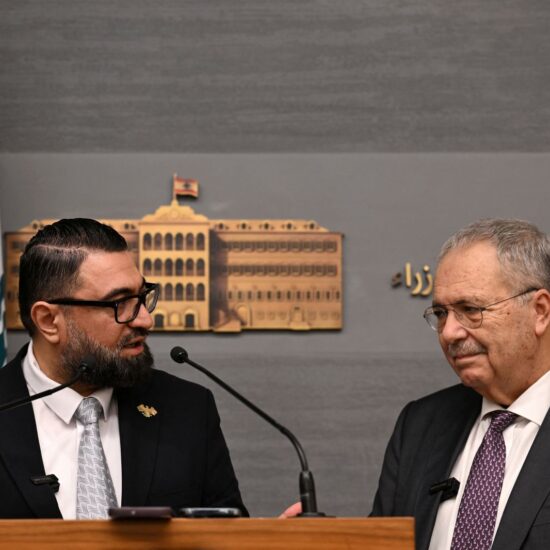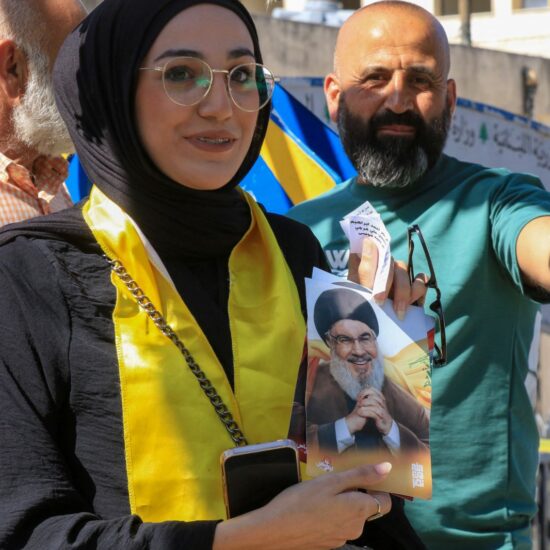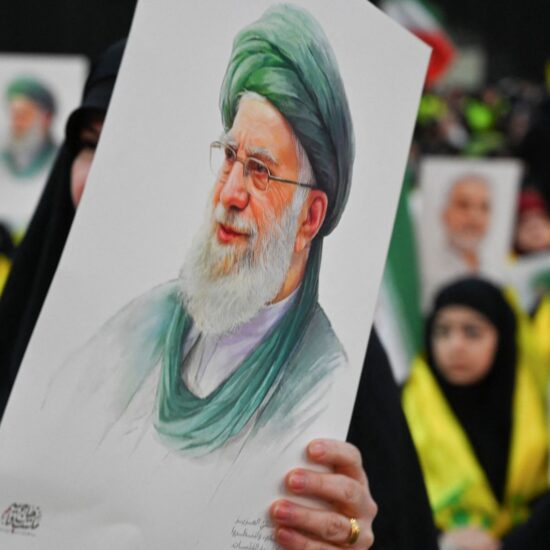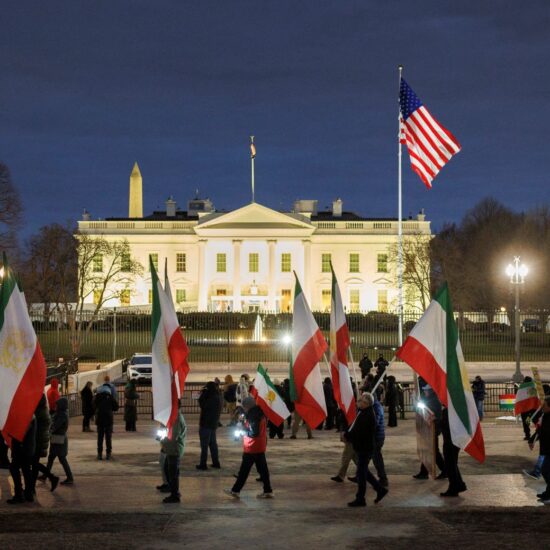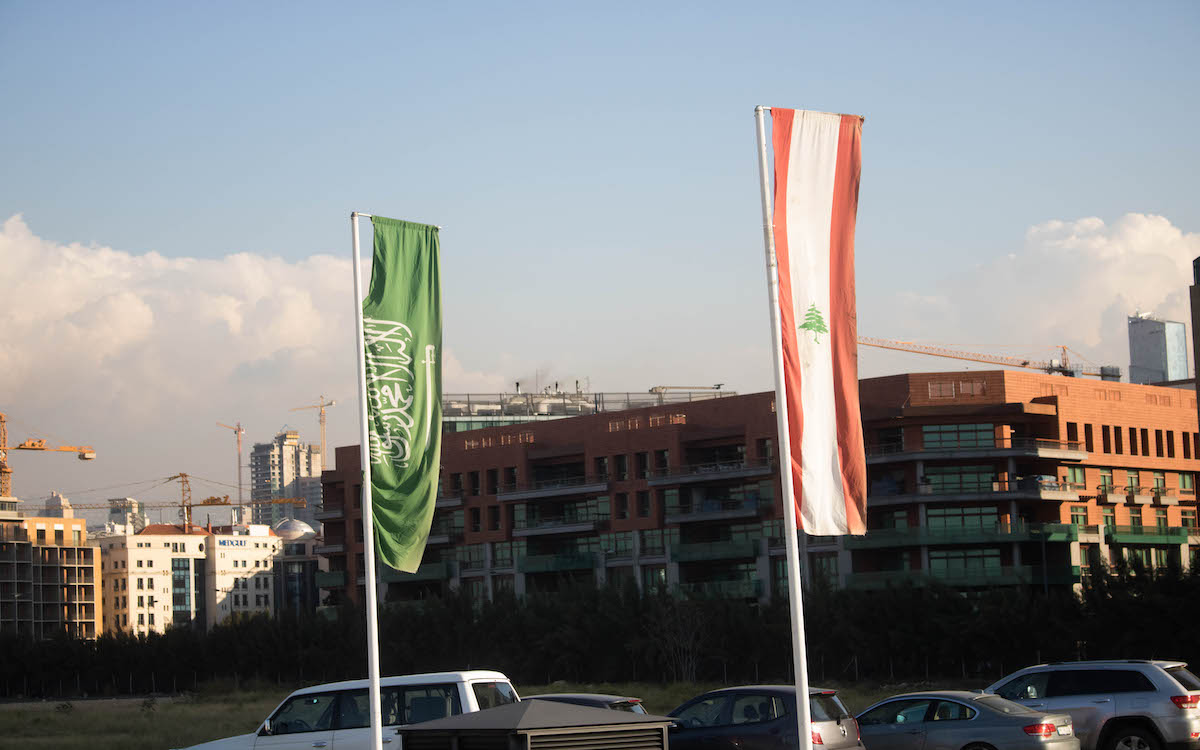
“I don’t think I would call it a crisis.”
Saudi Arabia’s foreign minister, Prince Faisal bin Farhan al-Saud, told CNBC’s Hadley Gamble in an interview on the side of the COP26 in Glasgow on Saturday that dealing with Lebanon’s government was pointless.
“I think we have come to the conclusion that dealing with Lebanon and its current government is not productive and not helpful with Hezbollah’s continuing dominance of the political scene, and with what we perceive as a continuing reluctance by this government and Lebanese political leaders in general to enact the necessary reforms, the necessary actions to push Lebanon in the direction of real change,” he explained.
The interview came hours after Saudi Arabia announced that Lebanon’s ambassador in Riyadh had just 48 hours to leave the country and that they were going to recall their ambassador from Beirut over an interview that Lebanese Information Minister George Kordahi gave in August, one month before he was chosen to be part of Najib Mikati’s government, where he condemned Saudi “aggression” in the war in Yemen.
Saudi Arabia’s allies in the Gulf, Kuwait, Bahrain and the United Arab Emirates, were soon to follow suit.
Despite the seeming randomness in the unproportionate response to an old interview and the speed in which other Gulf nations followed in Saudi Arabia’s footsteps, analysts say that this was clearly a coordinated, pre-planned effort that was only looking for a trigger to justify it.
“This wasn’t something unplanned,” Michael Young, a senior editor at the Carnegie Middle East Center in Beirut, told NOW. “I think that the Saudis were waiting for an opportunity to raise the heat on Lebanon. And they saw a golden opportunity with the statement by Kordahi.”
The last straw
The break of diplomatic ties between Saudi Arabia and Lebanon is the result of an accumulation of issues between the two countries, one of which also reached a breaking point earlier this year.
Over the last six years, Saudi Arabia had uncovered over 600 million Captagon pills hidden in fruits and vegetables that were being imported from Lebanon.
This ultimately led to the Saudis banning the import of Lebanese produce in April, dealing a blow to the Lebanese economy as these fruit and vegetable exports brought in around $24m annually.
On another level, the expansion of Iran throughout the region, and its strengthening of Hezbollah, its proxy group in Lebanon, has also irked the Saudis for years.
Iran and Hezbollah have been steadily expanding their role and grip on power in Lebanon despite the best efforts of Saudi Arabia, which has invested billions of dollars in the Mediterranean country. Riyadh has also planned a 3 billion dollar program to equip the Lebanese state army, as well as supporting political allies such as Saad Hariri’s Future Movement.
In 2016, Michel Aoun ascended to the presidency through the help of Hezbollah. Even though it brought Lebanon out of a political crisis, this came as much to the chagrin of the Saudis as Aoun’s party is a staunch ally of Hezbollah.
Still, Saudi Arabia continued pumping money into Lebanon in the hopes of countering Hezbollah and, by extension, Iran.
Despite these efforts, Hezbollah has only grown in strength with analysts saying that this was a major factor in the Saudi’s decision to break off diplomatic ties with Lebanon.
This was a response by the Saudis as a way of saying ‘Okay, you want to raise the heat in Marib? Well, we’re going to raise the heat in Lebanon which we consider basically an Iranian proxy.
“The Saudi influence has certainly decreased over the last years starting even before 2016 but, of course, that alliance back then was forged to include Hezbollah [in the government] also led to the capture of Hariri [by the Saudis], led to the increasing frustration of the Saudis,” Kristof Kleemann, director of the Friedrich Naumann Foundation for Freedom’s Beirut office, told NOW.
“There is a general feeling in Saudi Arabia and the other Gulf states that Lebanon is shifting too much towards the East and towards Iran and, now, they want to send a strong message that they will not accept such a strong influence of Hezbollah in Lebanon especially under the current government.”
Young also believes that the Saudi-Iranian cold war could be another factor in their decision-making.
Currently, the Iranian-backed Houthi rebels are advancing on the Yemeni city of Marib, putting more pressure on the Saudis and Emiratis who are supporting the current government.
“This is in the context of an ongoing regional tension between Iran and Saudi Arabia and the Gulf states,” Young explained.
“There is an Iranian-Saudi dialogue taking place, but, at the same time, what you had is this offensive in Marib, in Yemen, which showed, in a way, that this dialogue remains quite fragile and that the Iranian logic is not one of dialogue but one of really trying to impose its will on the Saudis. This was a response by the Saudis as a way of saying ‘Okay, you want to raise the heat in Marib? Well, we’re going to raise the heat in Lebanon which we consider basically an Iranian proxy.'”
For Young, this is part of the Saudis and Iranians continued pressure on one another while the two sides fight a proxy war for regional influence.
In addition to this, Hezbollah is also under increased pressure at home with dissatisfaction amongst the Christian population rising, especially following the October 14 shootout in Tayyouneh.
The armed group has also faced backlash over its steep opposition to Judge Tarek Bitar, the lead investigator of the August 4 Beirut port explosion investigation, prompting the party to take more forceful measures to try to end the investigation.
“[The Saudis] want to raise the heat and heighten the contradictions,” Young said. “It’s just a question of making life more difficult for Hezbollah.”
However, these attempts by Saudi Arabia and the other Gulf countries to weaken Iran and Hezbollah could have the opposite effect, leading to the duo being further empowered and the Lebanese people suffering because of this strategy.
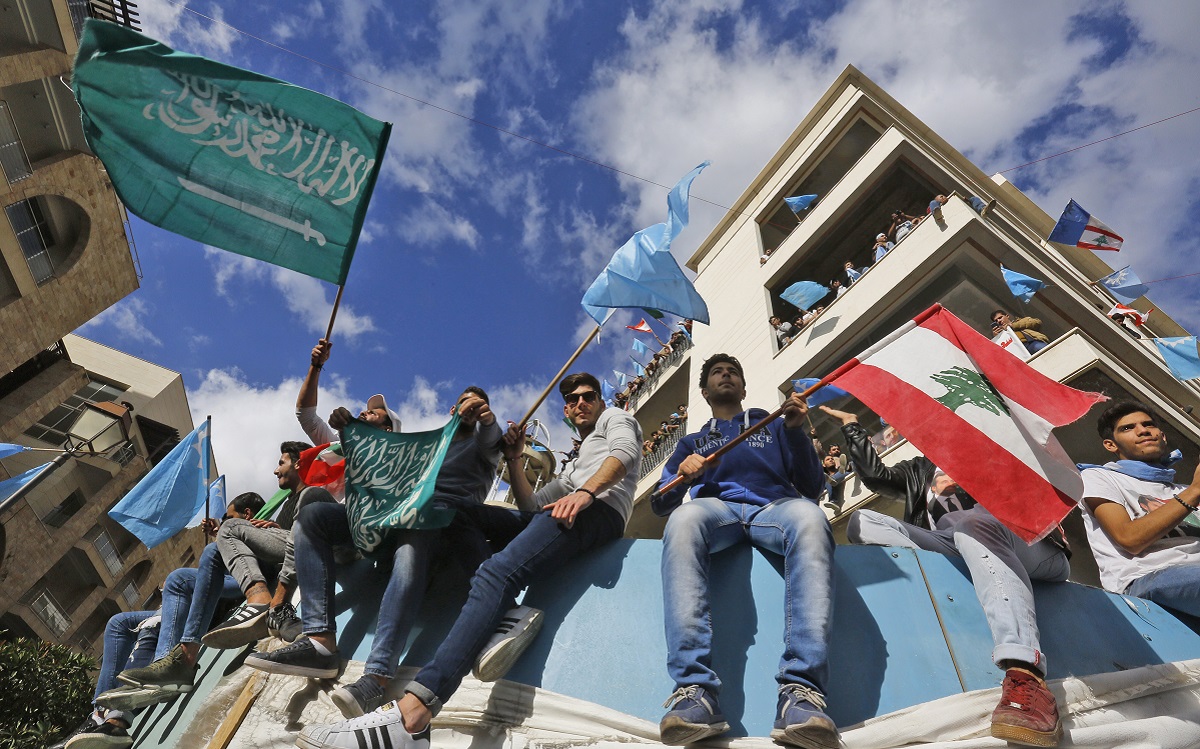
A void to fill
But the Saudis’ attempt to knock Hezbollah down, according to Young, could lead to the situation in Lebanon worsening, especially as the hundreds of millions of dollars that are brought to Lebanon through their exports to the Gulf nations dry up.
“The problem here, and I think it is a key issue, is that this is a strategy that could possibly lead to further breakdown in Lebanon,” Young stated. “And I don’t think that anyone in the international community wants to go down such a risky path. Not the Americans, not the French for a variety of reasons. And I don’t even think in the Arab world there is a consensus on this.”
Egypt and Jordan are still standing with Lebanon. Egypt is preparing to provide natural gas to Lebanon in order to alleviate the country’s energy crisis.
Even in the Gulf nations, not everyone is taking part in the ostracizing of Lebanon with Qatar not recalling their ambassador.
The situation, however, could worsen if prolonged and if Saudi Arabia, Bahrain, UAE and Kuwait decide to not allow remittances to be sent back to Lebanon, one of the few things holding the country afloat.
“I would say that probably the next escalation stage would be that those expats that live abroad would not be allowed to send remittances home and I think that would be to some extent the final blow to the Lebanese economy,” Kleemann said.
“Now, it’s basically a diplomatic front and, of course, the ban on imports from Lebanon which is worth around $200m per year of exports to Saudi [Arabia]. That is another blow for the Lebanese economy and it creates more pressure on the Lebanese government to get on with the IMF program because, now, more funds are drying up and the country needs money from somewhere.”
Even the Saudi efforts to dethrone Hezbollah could serve to empower the group as the Gulf absence in Lebanon leaves a large vacuum for Iran and its proxy to fill, something not lost on their supporters who cheered on as one country after the other announced their break in relations with Lebanon.
“The move now would rather help Hezbollah and Iran in grabbing more influence over the state and disengaging, as the last five years have shown, actually has the opposite effect to what maybe the Saudis want to achieve,” Kleemann said.
Young agreed, adding that any break in relations with outside powers, besides Iran, only help to empower the group.
“Hezbollah has been very unhappy in recent months to see that some Arab countries are trying to make a return to Lebanon,” he explained. “They don’t want to see any Arab influence that can water down Iran’s influence. This is doing exactly what they want if there were a breakdown in relations.”
This strategy also puts Lebanon’s new prime minister, Najib Mikati, in a tough position.
Currently, Mikati is in Glasgow, Scotland, in order to try and shore up support from the international community to help mediate the diplomatic crisis that his country is facing.
When he returns home, he is going to face a major battle over what direction the country goes.
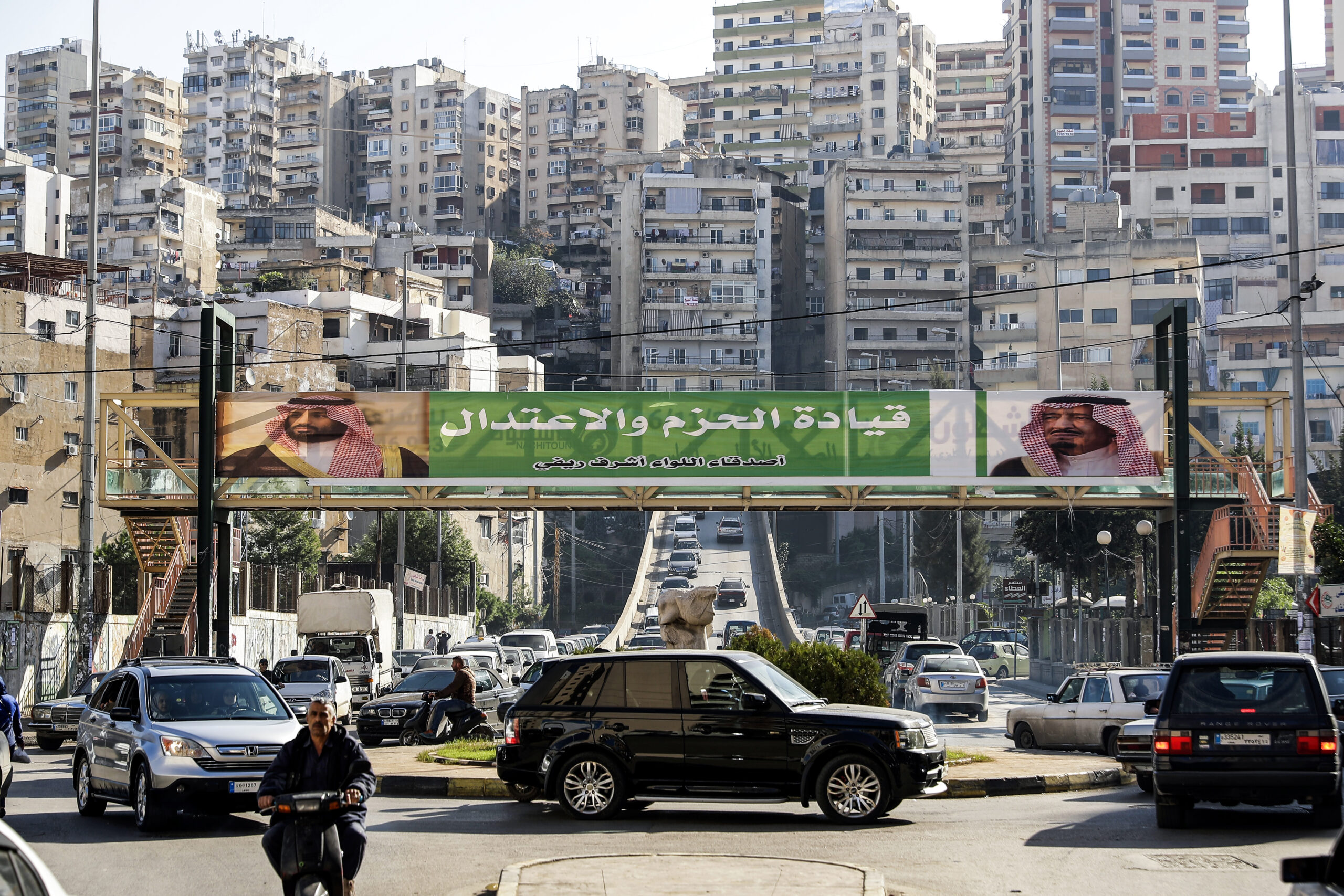
Fight night: Lebanon
When Kordahi went to Bkirki to meet with Maronite Patriarch Bechara Rai, there was a lot of speculation that he was going to announce his resignation following the meeting.
However, much to everyone’s surprise, Kordahi later told the press that his resignation was “out of the question.”
Hezbollah has also made it abundantly clear that should Kordahi be forced out of the government, their bloc would also resign, toppling the government.
This puts Mikati in a tricky situation as, according to Kleemann, he needs Kordahi to resign in order to give a concession to the Saudis.
“There needs to be a concession and that would be that that minister [Kordahi] needs to resign,” the analyst explained. “Without some kind of symbolic concession, the Saudis would not backtrack on this because that would mean that they would lose face.”
Prior to his Europe trip, Mikati had wanted Kordahi to resign in the hopes that it would mitigate some of the tensions. Now, when he returns to Lebanon, Mikati will have to stare down Hezbollah in the hopes that the group would blink first and concede this time.
“Clearly Mikati wants [Kordahi] to resign,” Young stated. “Mikati is in a dilemma. He wants Kordahi out. And I think that it is increasingly likely that he’ll come back from his trip and say that either Kordahi goes or I go. In other words, he’s willing to tell Hezbollah ‘I will not continue to head a government with Kordahi in it. So, if you want him, keep him, but I’m resigning.”
The move now would rather help Hezbollah and Iran in grabbing more influence over the state and disengaging, as the last five years have shown, actually has the opposite effect to what maybe the Saudis want to achieve.
Mikati is likely to refuse to be the leader of a government that is isolated by the rest of the Arab world. Also, Hezbollah does not want there to be another vacuum in Lebanon that would be formed by a third government resigning in three years, much less in the middle of one of the worst economic crises that the world has ever seen according to the World Bank.
“It becomes a question of who wins that round,” Young said. “If Hezbollah does say ‘Okay resign,’ then suddenly Lebanon is back in another terrible vacuum and with all of the disastrous consequences for the country.”
Kleemann argues that resigning is not realistically in the cards for Mikati since it would be the final nail in the coffin for Lebanon.
“If he resigns, then Lebanon would be left with no government again and there would be no government until the next election if there is an election. I think Mikati knows that if Lebanon wants to somehow stabilize, a government is certainly needed,” he stated.
Because of this, both Kleemann and Young believe that Mikati, Hezbollah and Suleiman Frangieh, the leader of the Marada Movement to which Kordahi is linked, will hammer out a compromise in an attempt to make all sides happy.
With presidential elections scheduled to take place next year, Frangieh is also not going to risk a shot at the presidency over one ministerial position.
“At the end of the day, to create a ministerial crisis over Kordahi is not, to my mind, worth it,” Young argued. “It’s not worth alienating Najib Mikati when the country is going through this serious situation simply for the sake of a minister who is not that important. We’re not talking about a major bloc here. We’re talking about Suleiman Frangieh. You can find a solution to Frangieh.”
While Kordahi’s resignation, if it comes, would work to ease tensions with the Gulf, there would still be a long road ahead with the two sides having to negotiate in order to truly end the crisis.
“[Kordahi’s resignation] would now lead to extensive negotiations between the Lebanese government and the Gulf states,” Kleemann said. “For the moment at least, this would send a message that Lebanon has kind of gotten the [Saudi’s] message.”
Nicholas Frakes is a multimedia journalist with @NOW_leb. He tweets @nicfrakesjourno.



